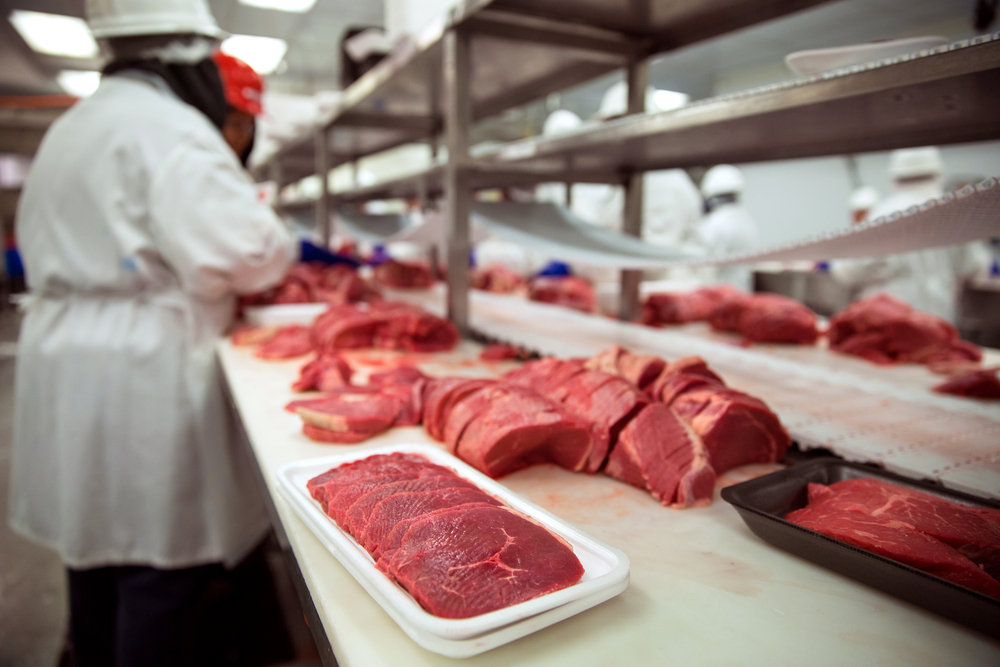
The FDA clearance and SGS results provide assurance that Mekeni’s facilities, equipment, raw meat materials, and all pork-based finished products for release in the market are 100 percent negative for ASF virus DNA. (Shutterstock Photo)
MANILA — The Food and Drug Administration (FDA) has given the go signal for Mekeni Food Corporation, one of the country’s leading food processors, to redistribute its pork-based products to the market.
In a letter to Mekeni Food, FDA said that upon due evaluation, it “allows the redistribution of processed pork meat products that tested negative for ASF (African Swine Fever)”.
Mekeni sought FDA clearance to redistribute its products after specific batches of the firm’s Picnic Red Classic Hotdog and Skinless Longaniza tested positive for DNA traces of the dreaded ASF virus.
On November 22, Mekeni presented to Department of Health (DOH) Undersecretary and FDA officer-in-charge Rolando Enrique Domingo all corrective actions taken by the company, including results of independent tests conducted by SGS, the world’s leading inspection and verification company.
After thorough review of documents and test results, the FDA gave Mekeni the clearance to redistribute its products.
The FDA clearance and SGS results provide assurance that Mekeni’s facilities, equipment, raw meat materials, and all pork-based finished products for release in the market are 100 percent negative for ASF virus DNA.
As a food business operator, FDA said Mekeni has the responsibility to be proactive in monitoring its products’ compliance to existing regulations, as well as to ensure that appropriate measures and controls are in place to prevent the possible use of contaminated raw materials.
Earlier, Mekeni voluntarily withdrew all its pork-based products to help prevent the continuous spread of ASF. The pullout was done while waiting for the official laboratory results from SGS and Bureau of Animal Industry. The proactive measure was commended by both the Department of Agriculture (DA) and FDA.
“During that difficult time, even if we knew that the business would be greatly affected, we chose to uphold our core values and put the welfare of the general public above all else,” Mekeni president Prudencio Garcia said in a statement.
He said Mekeni pulled out its products from the market to help the local hog industry and to mitigate the possibility that their products inadvertently become ASF carriers.
“Despite assurances from the Department of Health (DOH) that ASF poses no risk to humans, we took the issue seriously and spared no expense to thoroughly clean our plant, improve our processes and open it for inspection,” Garcia said.
As an additional safety measure, the company has committed that 100 percent of its raw meats sourced in the Philippines and abroad will undergo thorough testing for ASF.
A periodic environmental swabbing of its facilities will also be conducted to prevent potential contamination.
A dedicated food safety and quality officer has also been appointed to lead second layer of testing.
Garcia said these measures are on top of the company’s strict compliance with all government regulations and certifications, adding all meats delivered to its plant for processing are certified by the National Meat Inspection Service (NMIS) and have the necessary sanitary and phytosanitary clearance.
“The procedures we adopted in product testing and in our manufacturing facility are in line with our commitment to provide only the highest standards of food quality. We’re happy that these tests have yielded negative results and we can again share our products to our customers,” he said.
Garcia further said that while Mekeni’s ASF incident was an isolated case that could happen to any meat processor using the same processes and the same raw meats, the firm will continue working with the DA, DOH and NMIS for the implementation of a more comprehensive plan to mitigate the spread of ASF and prevent other processors from encountering the same problems.






















